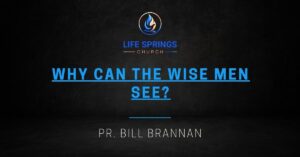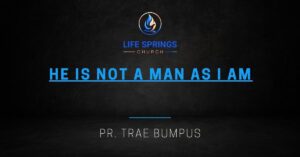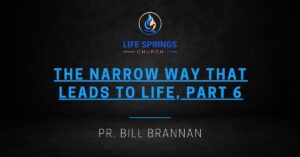The Secret to Lasting Fulfillment: Lessons from Philippians 4

In a world often filled with emptiness and longing for more, finding true fulfillment can seem elusive. This blog explores powerful Biblical truths from Philippians 4, revealing how contentment, humility, and the abundance of Christ can transform our lives and lead us to lasting satisfaction.
Introduction
In our pursuit of fulfillment, we often overlook the fundamental needs that shape our lives. The journey toward true satisfaction starts with understanding our essential needs for growth, finding contentment, and embracing humility. These elements are not just abstract ideas; they are vital components that guide us through life’s challenges and help us cultivate a deeper relationship with God.
Essential Needs for Growth
Growth is an integral part of our spiritual journey. It requires a foundation built on three essential needs: love, purpose, and community. Recognizing and nurturing these needs can lead us to a more fulfilling life.
- Love: We need to feel loved and to love others. This connection fosters emotional health and resilience.
- Purpose: Understanding our purpose gives our lives direction. It motivates us to strive for greatness and to serve others.
- Community: Being part of a community provides support and accountability. It allows us to share experiences and grow together in faith.
Each of these elements plays a crucial role in our growth as individuals and as a part of the body of Christ. Without love, we become stagnant. Without purpose, we drift aimlessly. And without community, we risk isolation in our struggles.

Photo by Tim Marshall on Unsplash
Finding Contentment
Contentment is a state of mind that many strive for but few attain. It is the ability to appreciate what we have rather than longing for what we do not. This mindset is vital for our overall happiness and well-being.
Paul’s message in Philippians reminds us that contentment does not come from external circumstances but from an internal peace that comes from God. It’s about recognizing that God provides for our needs, even when we feel like we are lacking.
To cultivate contentment, we must practice gratitude. Regularly reflecting on the blessings in our lives can shift our focus from what we lack to what we have. This simple practice can profoundly impact our perspective.

Photo by Courtney Hedger on Unsplash
The Power of Humility
Humility is often misunderstood. It is not self-deprecation but a recognition of our place in relation to God. Embracing humility allows us to acknowledge our limitations and rely on God’s strength.
Humility opens the door for growth. When we humble ourselves, we become teachable and ready to receive wisdom. It allows us to see our need for God and fosters a deeper relationship with Him.
In our interactions with others, humility promotes compassion and understanding. It shifts our focus from ourselves to those around us, encouraging us to serve rather than be served.

Photo by Karsten Würth on Unsplash
Naaman’s Pride and Lessons
The story of Naaman serves as a powerful lesson on pride and humility. Naaman, a commander in the Syrian army, was a man of great stature but also suffered from leprosy. His pride nearly cost him his healing.
When Naaman sought healing, he expected a grand gesture. Instead, he was told to wash in the Jordan River. His initial reaction was one of anger and disbelief; he felt slighted by the simplicity of the command. This moment illustrates how pride can cloud our judgment and prevent us from receiving what we truly need.
Ultimately, it was Naaman’s willingness to humble himself that led to his healing. He had to set aside his expectations and pride to experience God’s miracle. This story reminds us that humility is often the key to unlocking God’s blessings in our lives.

Photo by Cecilie Bomstad on Unsplash
Elisha’s Command Explained
Elisha’s command to Naaman was straightforward: wash in the Jordan seven times. This command was not just about the act of washing; it was a test of faith and obedience. Elisha wanted Naaman to trust in God’s power rather than his own understanding.
The Jordan River was not the cleanest river; it was a humble waterway. By sending Naaman to wash there, God was emphasizing that His ways are higher than our ways. This command challenged Naaman to let go of his pride and submit to God’s will.
In our own lives, we may encounter commands from God that seem simple or even foolish. Yet, these are often the moments where our faith is tested. Are we willing to obey and trust that God knows what is best for us?

Photo by hannah joshua on Unsplash
Naaman’s Rage Reaction
Naaman’s initial rage reaction is a common response when faced with humility. When confronted with instructions that challenge our pride, we may react defensively. This reaction is rooted in our desire for control and our reluctance to submit to God’s plan.
However, Naaman’s servants played a crucial role in calming him. They reminded him of the importance of humility and obedience. Sometimes, we need the voices of others to help us see clearly when we are blinded by our pride.
Naaman’s journey teaches us that our reactions matter. In moments of frustration or anger, we must pause and reflect. Are we allowing our pride to dictate our responses? Or are we willing to listen, learn, and submit to God’s greater purpose?

Photo by Graham Padmore on Unsplash
Insights from Naaman’s Servants
Naaman’s story is not just about his healing; it is also about the wisdom and humility demonstrated by his servants. When faced with Naaman’s rage and pride, they approached him with gentle words of encouragement. Their insight highlights the importance of listening to those around us, especially when we are blinded by our own emotions.
These servants understood that Naaman needed to humble himself to receive healing. They reminded him that he was willing to undertake great feats for recognition but was reluctant to follow a simple command from God. This contrast emphasizes how pride can prevent us from embracing God’s grace.

Photo by Ashes Sitoula on Unsplash
Lessons from Their Intervention
- Humility: The servants showed that humility is crucial in guiding others toward the right path.
- Encouragement: They encouraged Naaman to act against his pride, reminding him of the importance of obedience.
- Perspective: Their perspective helped Naaman see the situation differently, illustrating the value of wise counsel.
In our own lives, we can learn from Naaman’s servants by recognizing the importance of humility and the power of encouragement. Sometimes, it takes the insight of others to help us overcome our pride and embrace the path God has laid out for us.

Photo by National Cancer Institute on Unsplash
Naaman’s Healing Journey
Naaman’s journey to healing is a profound example of the transformative power of obedience. After initially resisting Elisha’s command, Naaman ultimately chose to dip himself in the Jordan River seven times. This act of faith marked the turning point in his life.
As he submerged himself in the water, his doubts began to wash away, and with each dip, his skin was restored. This physical healing symbolizes a deeper spiritual transformation. Naaman learned that true healing often requires us to confront our pride and submit to God’s will.

Photo by Ashley Batz on Unsplash
The Significance of Obedience
Obedience is a recurring theme in scripture. It is not merely about following commands but about trusting in God’s wisdom. Naaman’s healing teaches us that obedience can lead to miraculous transformations in our lives.
God often asks us to do things that seem trivial or nonsensical. Yet, it is in these moments of obedience that we may experience profound change. Naaman’s story encourages us to obey, even when we don’t understand the reasons behind the commands.

Photo by Maximus Beaumont on Unsplash
Job 42: Restoration and Faith
Job’s story mirrors the themes of humility and restoration found in Naaman’s journey. After enduring immense suffering, Job’s faith remained steadfast. In Job 42, we see his profound acknowledgment of God’s sovereignty and power.
Job declares, “I know that you can do everything, and that no purpose of yours can be withheld from you.” This statement reflects Job’s understanding of God’s ultimate authority and plan. He realized that his suffering was not a reflection of God’s abandonment but rather a part of a greater purpose.

Photo by Simon Kadula on Unsplash
The Process of Restoration
Job’s restoration came after he prayed for his friends, demonstrating that true healing often involves intercession for others. His humility in the face of suffering allowed him to see God’s hand at work. Job learned that restoration is not just about receiving blessings but also about giving back to God and others.
God restored Job’s fortunes, giving him even more than he had before. This restoration underscores the principle that humility and faith lead to abundance. Just as Naaman was healed through humility, Job was restored through faithfulness and intercession.

Photo by Egor Myznik on Unsplash
The World Needs Jesus Today
As we reflect on the stories of Naaman and Job, we recognize a crucial truth: the world desperately needs Jesus. In a time filled with uncertainty and division, the message of Christ offers hope, healing, and restoration. Just as Naaman and Job found redemption through humility and faith, so too can we find peace through Jesus.
Many people are searching for fulfillment in material possessions or worldly achievements, unaware that true satisfaction comes from a relationship with Christ. Jesus invites us to cast aside our pride and embrace His grace. He calls us to share this message of hope with others.

Photo by Edward Cisneros on Unsplash
Sharing the Message
- Live by Example: Demonstrate Christ’s love through your actions and words.
- Reach Out: Engage with those around you, sharing your testimony of faith.
- Pray: Intercede for others, asking God to soften their hearts to receive His message.
The world needs to see authentic examples of faith in action. By embodying the love of Christ, we can make a lasting impact in our communities and beyond.

Photo by AbsolutVision on Unsplash
Closing Prayer and Reflection
As we conclude, let us take a moment to reflect on the lessons learned from Naaman and Job. May we strive to embody humility, recognizing our need for God in every aspect of our lives. Let us pray for the courage to obey God’s commands, even when they challenge our pride.
Lord, help us to be humble servants, willing to submit to Your will. May we always seek to grow in faith and share the message of Your love with those around us. Amen.
Post-Service Hangout Discussion
After the service, we invite everyone to join in a discussion about the insights shared today. This is an opportunity to reflect on how we can apply these lessons in our daily lives.
- What stood out to you from Naaman’s story? How can we apply humility in our own lives?
- In what ways can we support each other in our healing journeys?
- How can we actively share the message of Jesus with those around us?
Engaging in conversation allows us to deepen our understanding and encourage one another in our faith journeys. Let’s come together in community to explore these vital themes further.

Photo by Kelly Sikkema on Unsplash








